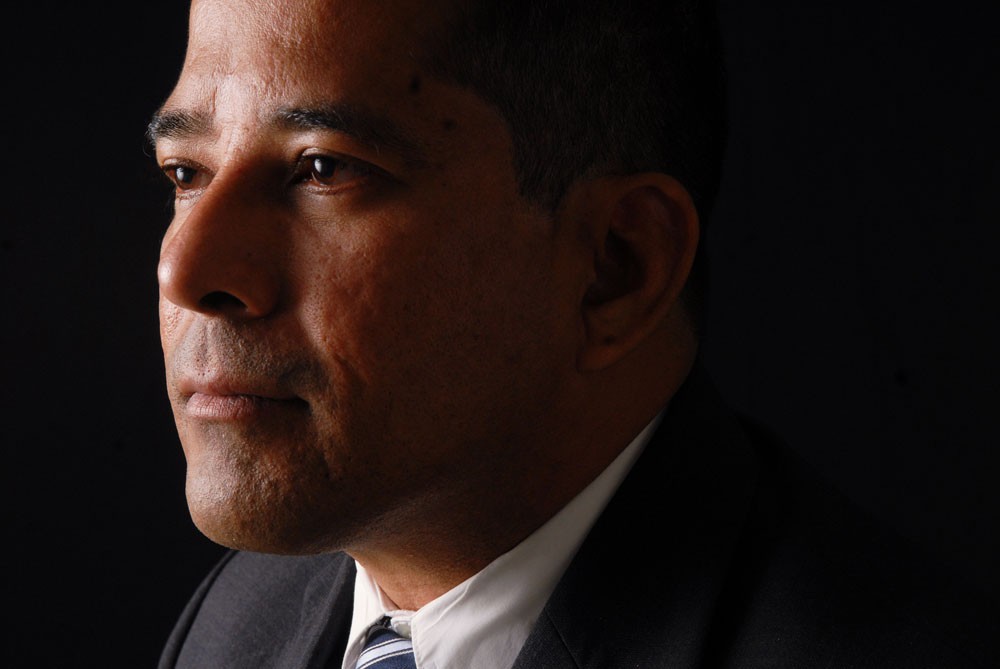Socialist Workers Party Presidential candidate Roger Calero visited campus Wednesday to talk to a political science class and do some campaigning. Calero, who lived in Minnesota in 2000, is running for the nationâÄôs highest office for the second time. In 2004, he received 416 votes in Minnesota, less than one percent of the vote. As the partyâÄôs name implies, CaleroâÄôs major issues revolve around the rights of working people in the United States and the role they play in shaping policy and solving problems in the country. âÄúWhen you put the priorities of working people first, these things could be accomplished and they could be accomplished very quickly,âÄù he said. Calero joined the Socialist movement after the 1992 protests to the first Iraq War. Since then, he has participated in social movements protesting issues such as police brutality and the death penalty. Calero also has a history of working with organized labor. In 2000, Calero helped organize a union at a slaughterhouse in St. Paul where he was a meatpacker. But Calero doesnâÄôt have his eyes solely on labor. He also supports policies such as abolishing capitalism, legalization of undocumented immigrants in the U.S. and providing universal free education from grade school to college age. âÄúWe believe these things should be a right for the working people,âÄù he said. University first-year John Clifford said he supports Calero because of his policies. âÄúContinuing education completely free is a huge appeal,âÄù he said. But it wasnâÄôt just CaleroâÄôs education promise that got CliffordâÄôs attention âÄî he said he was also drawn to, âÄúsocialism in general, trying to end the economic crisis that working people face.âÄù Not all of CaleroâÄôs positions were popular with the class. Zach King , a political science senior, said he disagreed with the extent to which Calero would use the government. âÄúThereâÄôs a place for socialism in America,âÄù King said, mentioning medicine or education. âÄúItâÄôs going a little extreme.âÄù Elora Turner , global studies and political science sophomore, said she thought CaleroâÄôs views were too radical to work. âÄúYou have to work with the system to change the system,âÄù she said. Erica Sivertson , finance and international business senior, said it was interesting to hear Calero speak, even if she didnâÄôt agree with his stance on abolishing capitalism. âÄúHis idea would limit self-motivation,âÄù she said. Calero, who is on the ballot in 10 states including Minnesota, faces a rough road in the general election in November. Socialist Workers Party candidates have struggled in elections in the past. Nationally in 2004, Calero received 3,689 votes and James Harris, another Socialist Workers Party candidate, received 7,102 votes, combining for less than one percent of total votes cast. In 2000, Harris received 7,378 votes, again less than one percent of the vote. But political science Professor August Nimtz said socialists play a more veiled role in politics. During economic downswings, Nimtz said the government can make concessions to the working class to keep them from seeking a socialist alternative. âÄúElites are always very much concerned about economic crises provoking radicalization in the working class,âÄù he said. Sofia Shank, a global studies and gender, women and sexuality studies sophomore, said the UniversityâÄôs destruction of the General College in 2005 represents societyâÄôs focus away from the working class. âÄúThere is a crisis here in terms of what do we think our society should look like,âÄù she said. âÄúThere is no alternative except for the socialist path of how weâÄôre going to create a different system.âÄù Though election hopes look slim, Calero said he hopes to see a socialist movement develop in the same vein as the civil rights movement. âÄúAny significant gain that working people will make will not come about from the election of an individual, but by building a movement,âÄù he said.











